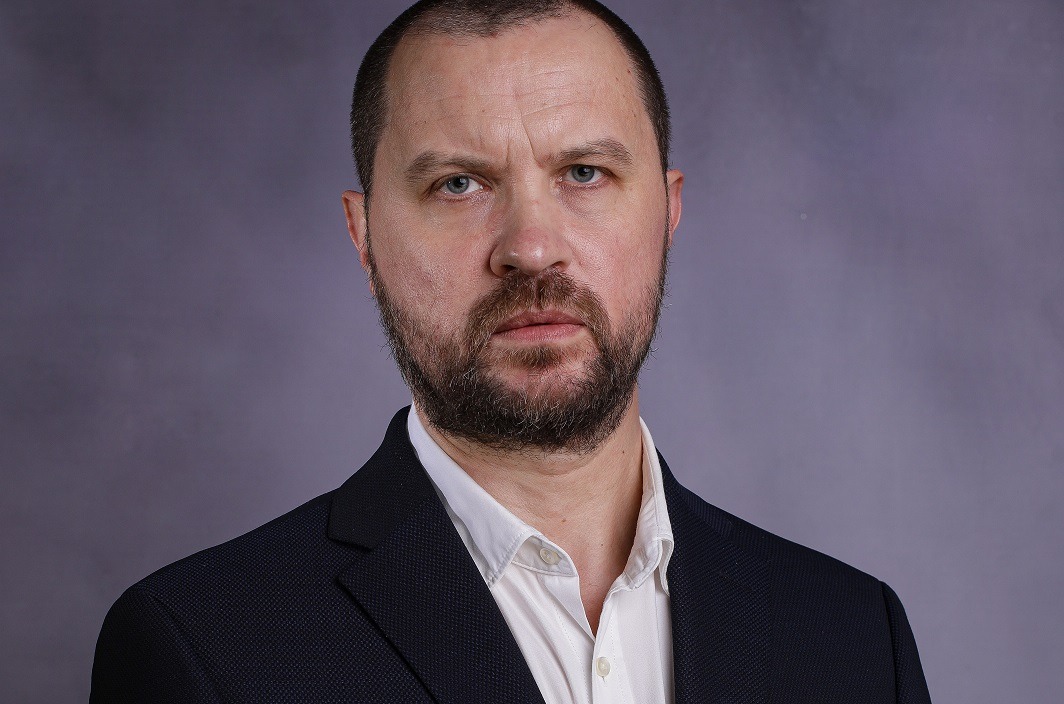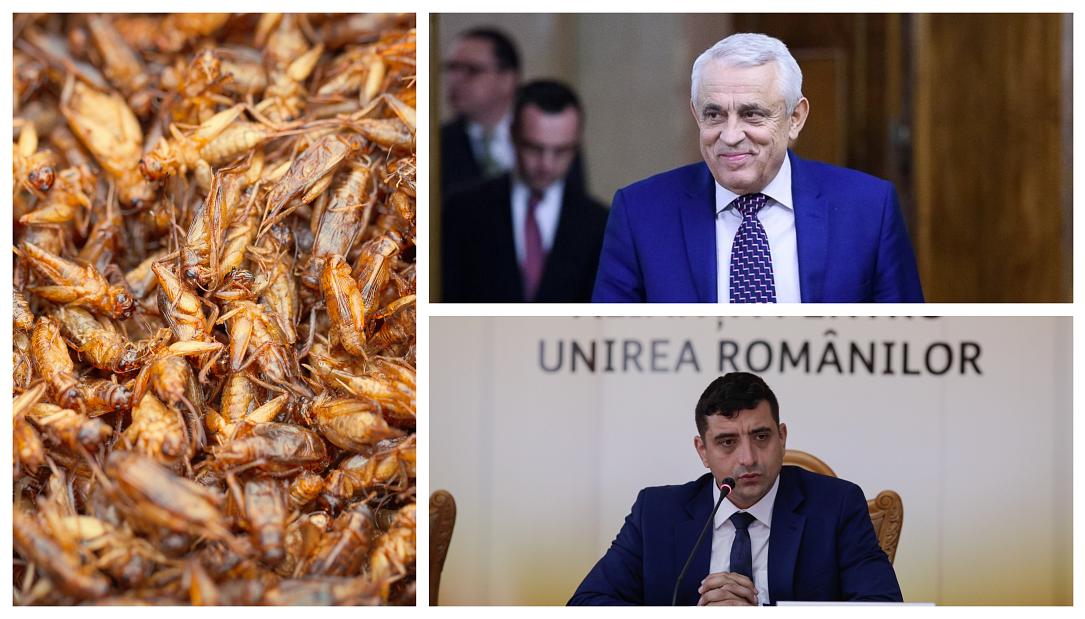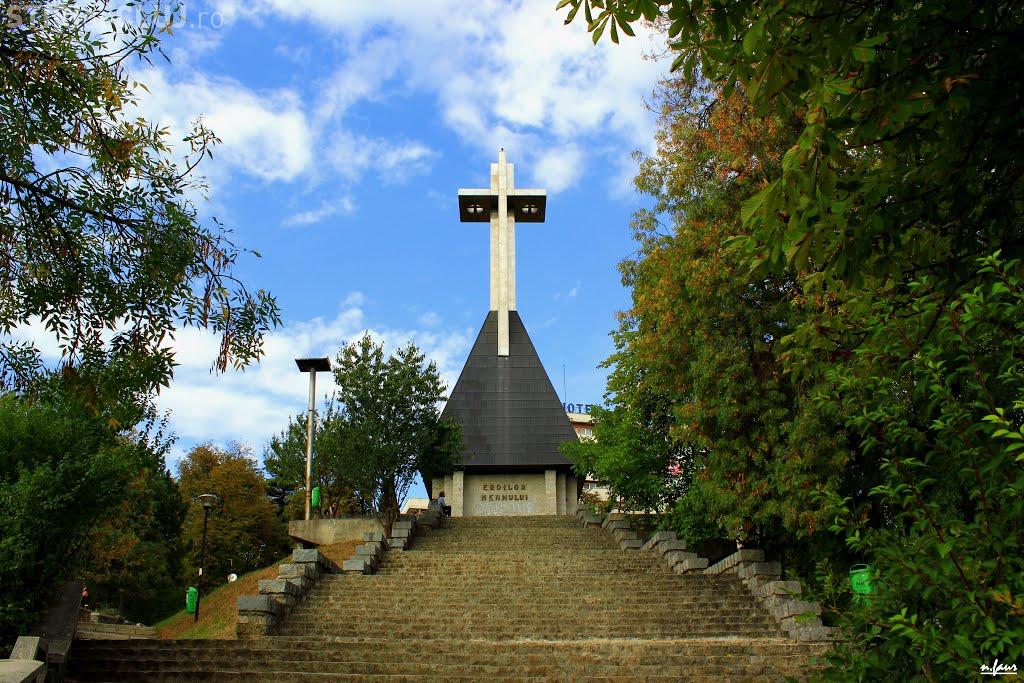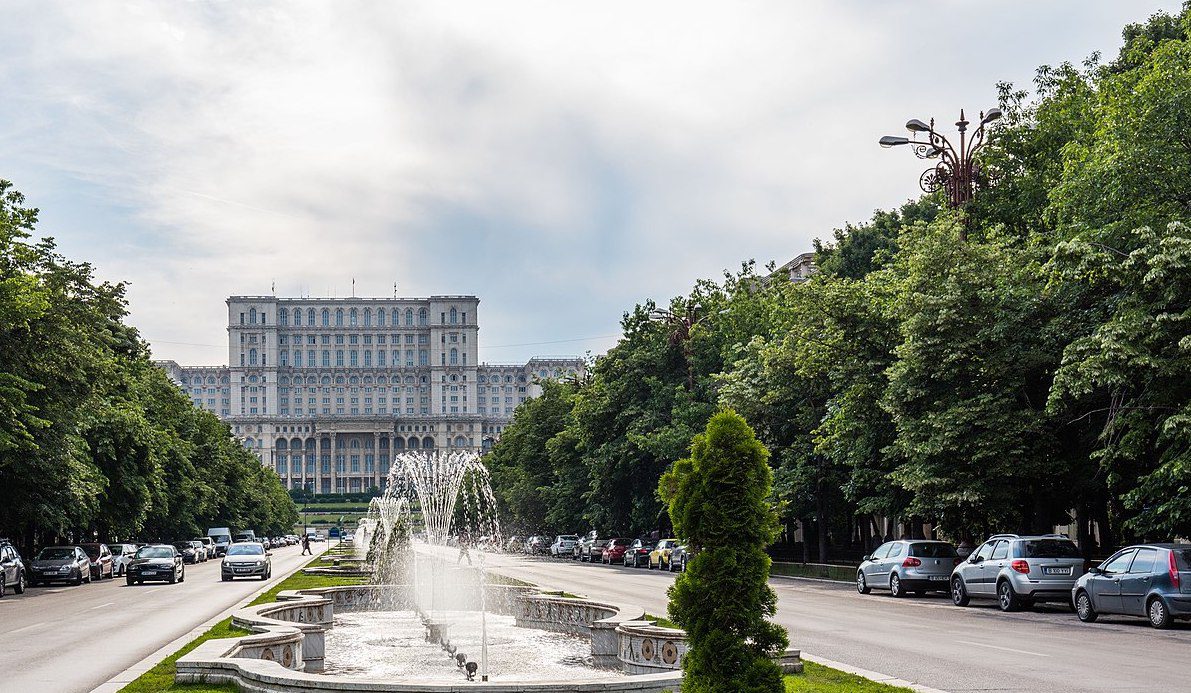Petr
Administrator
Looks like an anti-carpetbagger action:

 www.dw.com
www.dw.com
Last week, right-wing extremists stormed the city hall in Timisoara, targeting the German mayor. The far-right party behind the violence is becoming more popular and causing a major political problem.

Dominic Fritz, the mayor of the western Romanian city of Timisoara
The rioters entered the building through the back entrance, yelling "shameful, shameful" as they demanded to see the mayor. Although masks are compulsory indoors, no one was wearing one and there were no police to stop the crowd. Only a single employee of city hall stood in their way as they screamed "come out, you dirty dog," referring to the city's mayor. After a quarter of an hour of verbal aggression, they finally left the building.
That was the scene that played out in the western Romanian city of Timisoara last Friday. Dozens of supporters of the right-wing extremist party, the Alliance for Romanian Unity (AUR), which picked up just under 10% of the vote and is the fourth-largest group in parliament, gathered in the city center. Also present were members of the notorious neo-Nazi group, New Right (ND).
Also on hand was AUR leader George Simion, who together with fellow marchers, targeted the German mayor of the city, Dominic Fritz. In September 2020, Fritz became the first local politician with foreign citizenship to be elected mayor of a Romanian city. The country does not need "this kind of a foreigner," Simion shouted, and announced the formation of what he called an "anti-Fritz league."
The demonstrators chanted "Fritz remember, this is not your city!" as Simion led the roaring crowd into city hall by way of the back door since the front door was locked. There are videos on Facebook that document the events.
The mayors of 23 Romanian cities signed a statement declaring their solidarity with Dominic Fritz and have urged authorities to take tougher action against rioters. The leader of the progressive green anti-corruption party, Save Romania Union, Dacian Ciolos, even went so far as to blame the local authorities, saying in a Facebook post that the AUR's actions essentially took place with their "permission and support."
The city's mayor, Dominic Fritz told DW that the march on city hall was "a message against the city of Timisoara with its multicultural and pro-European character. It is also a statement against my election victory, because it was a symbol of tolerance and openness in this city. The nationalists want to give the impression that there is no majority for this. But, at least in Romania's big cities there is this majority, which people now are trying to intimidate," Fritz said.

Tanks in Timisoara — the uprising against the Ceausescu dictatorship began here in December 1989
The events in Timisoara were probably among the most disturbing organized by the AUR so far, but they were by no means the party's first. Just a few weeks ago, AUR supporters, together with COVID conspiracists and anti-vaccine protesters, stormed the courtyard of the parliament in the capital Bucharest, where police officers managed to stop them from actually entering the building.
For some time now, the AUR has played a pivotal role in organizing violent anti-coronavirus protests nationwide.
Although the AUR has failed to mobilize more than a few dozen people for such events — a maximum of 2,000 people have showed up for their anti-coronavirus protests — many observers say the party poses one of the biggest political problems for Romania. The AUR, whose acronym means "gold" in Romanian, was founded in September 2019, and entered parliament just a year later with 9% of the vote – surprising almost all forecasters.
Since then, the party's polling numbers have been going through the roof. It is currently polling at just under 20% nationally and, in some surveys, it's the second strongest party behind the Social Democrats.
But the AUR isn't just your garden-variety right-wing party. It is also explicitly anti-Western, Euroskeptic, anti-Semitic, anti-minority, homophobic, and pro-Putin, and wants to unify with the Republic of Moldova, which, in the past, was part of Romania.
The party's aggressive anti-establishment events, which reach hundreds of thousands of people via social media, increasingly resonate with voters dissatisfied with mainstream politics and a state of constant political crisis in Romania.
Paradoxically, the AUR is reaching out to Victor Orban's Fidesz party and other right-wing nationalists on a European level, while at the same time taking a more chauvinistic position domestically when it comes to the Hungarian minority in Transylvania, which includes approximately 1.2 million people.
An example of this was when George Simion led anti-Hungarian protests in the Uz Valley in the eastern Carpathian Mountains back in June 2019, just prior to the AUR's founding. During those protests, nationalist Romanian hooligans vandalized a cemetery with Hungarian and Romanian war graves while George Simion was busy declaring his admiration for the Hungarian leader, Viktor Orban. He even went so far as to call himself the "Orban of Romania" with the AUR now saying it wants to become a member of a new European alliance of right-wing nationalists and extremists, which Viktor Orban helped to initiate.
It is unclear whether the violent events at Timisoara's city hall will have far-reaching consequences for Simion or the other rioters. So far, authorities have only imposed minor fines for violating mask requirements and for disturbing the public order.
This story was originally written in German.

Romania: Right-wing extremists target German mayor – DW – 01/19/2022
Last week, right-wing extremists stormed the city hall in Timisoara, targeting the German mayor. The far-right party behind the violence is becoming more popular and causing a major political problem.
Romania: Right-wing extremists target German mayor
Last week, right-wing extremists stormed the city hall in Timisoara, targeting the German mayor. The far-right party behind the violence is becoming more popular and causing a major political problem.

Dominic Fritz, the mayor of the western Romanian city of Timisoara
The rioters entered the building through the back entrance, yelling "shameful, shameful" as they demanded to see the mayor. Although masks are compulsory indoors, no one was wearing one and there were no police to stop the crowd. Only a single employee of city hall stood in their way as they screamed "come out, you dirty dog," referring to the city's mayor. After a quarter of an hour of verbal aggression, they finally left the building.
That was the scene that played out in the western Romanian city of Timisoara last Friday. Dozens of supporters of the right-wing extremist party, the Alliance for Romanian Unity (AUR), which picked up just under 10% of the vote and is the fourth-largest group in parliament, gathered in the city center. Also present were members of the notorious neo-Nazi group, New Right (ND).
Also on hand was AUR leader George Simion, who together with fellow marchers, targeted the German mayor of the city, Dominic Fritz. In September 2020, Fritz became the first local politician with foreign citizenship to be elected mayor of a Romanian city. The country does not need "this kind of a foreigner," Simion shouted, and announced the formation of what he called an "anti-Fritz league."
The demonstrators chanted "Fritz remember, this is not your city!" as Simion led the roaring crowd into city hall by way of the back door since the front door was locked. There are videos on Facebook that document the events.
'A message against tolerance and openness'
Simion and his party's storming of city hall has sparked a great deal of outrage in Romania. The prominent journalist and political commentator, Cristian Tudor Popescu even compared the marches with those of Nazi storm troopers back in the 1920s and 30s.The mayors of 23 Romanian cities signed a statement declaring their solidarity with Dominic Fritz and have urged authorities to take tougher action against rioters. The leader of the progressive green anti-corruption party, Save Romania Union, Dacian Ciolos, even went so far as to blame the local authorities, saying in a Facebook post that the AUR's actions essentially took place with their "permission and support."
The city's mayor, Dominic Fritz told DW that the march on city hall was "a message against the city of Timisoara with its multicultural and pro-European character. It is also a statement against my election victory, because it was a symbol of tolerance and openness in this city. The nationalists want to give the impression that there is no majority for this. But, at least in Romania's big cities there is this majority, which people now are trying to intimidate," Fritz said.
Not the first time
The violent storming of city hall in Timisoara by right-wing extremists and nationalists is particularly sad from a symbolic standpoint. The uprising against the Ceausescu dictatorship began in this same city in 1989, and a large number of people lost their lives. Ever since, Timisoara, Romania's third-largest city, sees itself as a symbol of a free and European Romania. Even during the darkest days of post-communist nationalism in the country, the city repeatedly stood up for freedom and liberalism.
Tanks in Timisoara — the uprising against the Ceausescu dictatorship began here in December 1989
The events in Timisoara were probably among the most disturbing organized by the AUR so far, but they were by no means the party's first. Just a few weeks ago, AUR supporters, together with COVID conspiracists and anti-vaccine protesters, stormed the courtyard of the parliament in the capital Bucharest, where police officers managed to stop them from actually entering the building.
For some time now, the AUR has played a pivotal role in organizing violent anti-coronavirus protests nationwide.
AUR climbing in the polls
In addition, the party made headlines just days ago, demanding that the Holocaust and the murder of Romanian Jews not be taught in schools. This was not the first time the party has been active in Timisoara: last March, the party's supporters demonstrated in front of Mayor Dominic Fritz's private apartment, yelling racist and xenophobic slogans while protesting the mayor's coronavirus restrictions.Although the AUR has failed to mobilize more than a few dozen people for such events — a maximum of 2,000 people have showed up for their anti-coronavirus protests — many observers say the party poses one of the biggest political problems for Romania. The AUR, whose acronym means "gold" in Romanian, was founded in September 2019, and entered parliament just a year later with 9% of the vote – surprising almost all forecasters.
Since then, the party's polling numbers have been going through the roof. It is currently polling at just under 20% nationally and, in some surveys, it's the second strongest party behind the Social Democrats.
Anti-Hungarian but pro-Orban
For years now, Romania has had no notable right-wing nationalists to speak of when compared with Hungary, Poland, and most other central and southeastern European countries. That was partly because parties like the Social Democrats filled the apparent void on the right with right-wing nationalist and xenophobic positions of their own.But the AUR isn't just your garden-variety right-wing party. It is also explicitly anti-Western, Euroskeptic, anti-Semitic, anti-minority, homophobic, and pro-Putin, and wants to unify with the Republic of Moldova, which, in the past, was part of Romania.
The party's aggressive anti-establishment events, which reach hundreds of thousands of people via social media, increasingly resonate with voters dissatisfied with mainstream politics and a state of constant political crisis in Romania.
Paradoxically, the AUR is reaching out to Victor Orban's Fidesz party and other right-wing nationalists on a European level, while at the same time taking a more chauvinistic position domestically when it comes to the Hungarian minority in Transylvania, which includes approximately 1.2 million people.
An example of this was when George Simion led anti-Hungarian protests in the Uz Valley in the eastern Carpathian Mountains back in June 2019, just prior to the AUR's founding. During those protests, nationalist Romanian hooligans vandalized a cemetery with Hungarian and Romanian war graves while George Simion was busy declaring his admiration for the Hungarian leader, Viktor Orban. He even went so far as to call himself the "Orban of Romania" with the AUR now saying it wants to become a member of a new European alliance of right-wing nationalists and extremists, which Viktor Orban helped to initiate.
Just fines so far
Dominic Fritz, the mayor of Timisoara, is concerned about the rise of the AUR, above all, because he thinks it reflects a "profound crisis of confidence and a decline in political culture," which is evident in many other European countries. Fritz is not worried about his personal wellbeing however. "I feel safe in the city," he says, "because there are hardly any people in Timisoara itself who take part in events like the one on Friday. The rioters mostly come from outside."It is unclear whether the violent events at Timisoara's city hall will have far-reaching consequences for Simion or the other rioters. So far, authorities have only imposed minor fines for violating mask requirements and for disturbing the public order.
This story was originally written in German.
Last edited:









